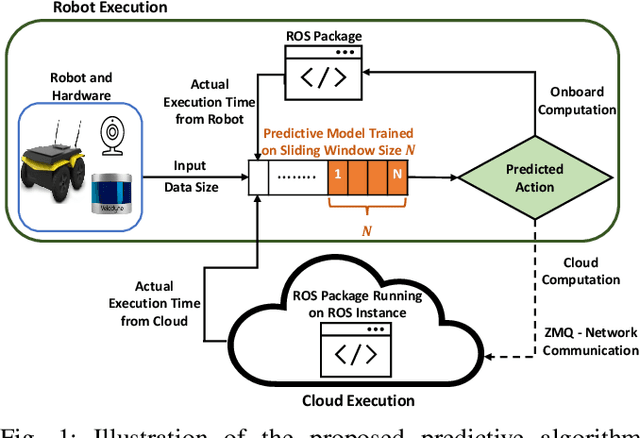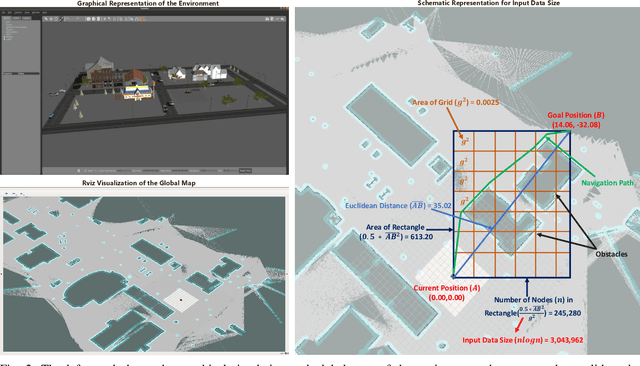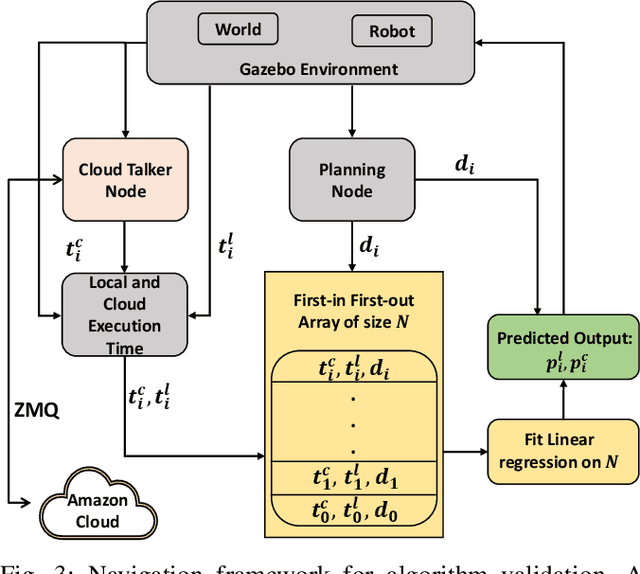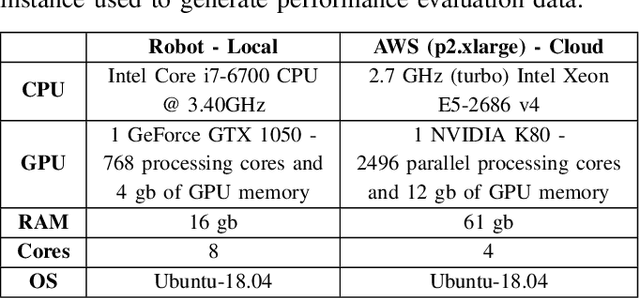A Predictive Application Offloading Algorithm Using Small Datasets for Cloud Robotics
Paper and Code
Aug 28, 2021



Many robotic applications that are critical for robot performance require immediate feedback, hence execution time is a critical concern. Furthermore, it is common that robots come with a fixed quantity of hardware resources; if an application requires more computational resources than the robot can accommodate, its onboard execution might be extended to a degree that degrades the robot performance. Cloud computing, on the other hand, features on-demand computational resources; by enabling robots to leverage those resources, application execution time can be reduced. The key to enabling robot use of cloud computing is designing an efficient offloading algorithm that makes optimum use of the robot onboard capabilities and also forms a quick consensus on when to offload without any prior knowledge or information about the application. In this paper, we propose a predictive algorithm to anticipate the time needed to execute an application for a given application data input size with the help of a small number of previous observations. To validate the algorithm, we train it on the previous N observations, which include independent (input data size) and dependent (execution time) variables. To understand how algorithm performance varies in terms of prediction accuracy and error, we tested various N values using linear regression and a mobile robot path planning application. From our experiments and analysis, we determined the algorithm to have acceptable error and prediction accuracy when N>40.
 Add to Chrome
Add to Chrome Add to Firefox
Add to Firefox Add to Edge
Add to Edge